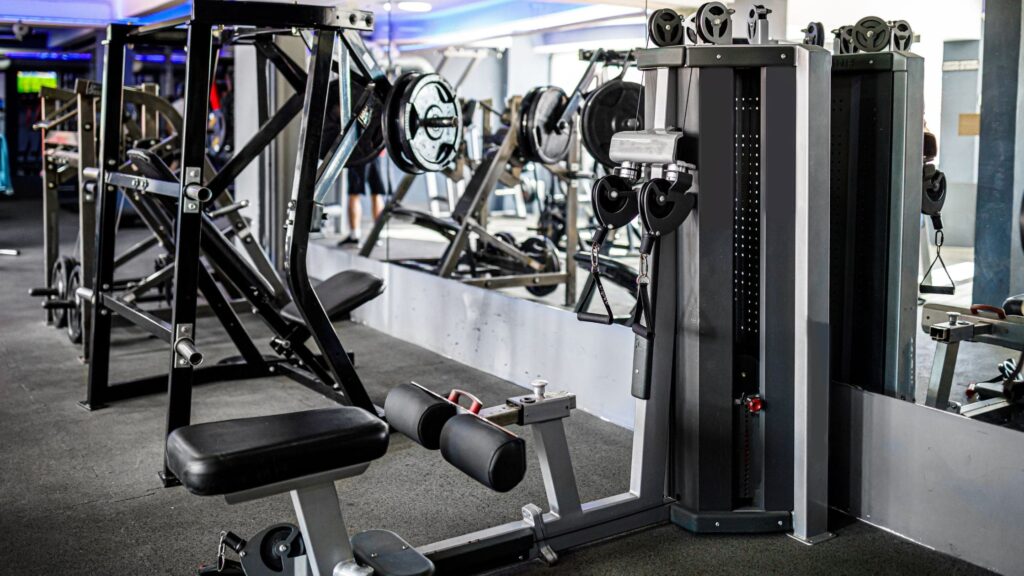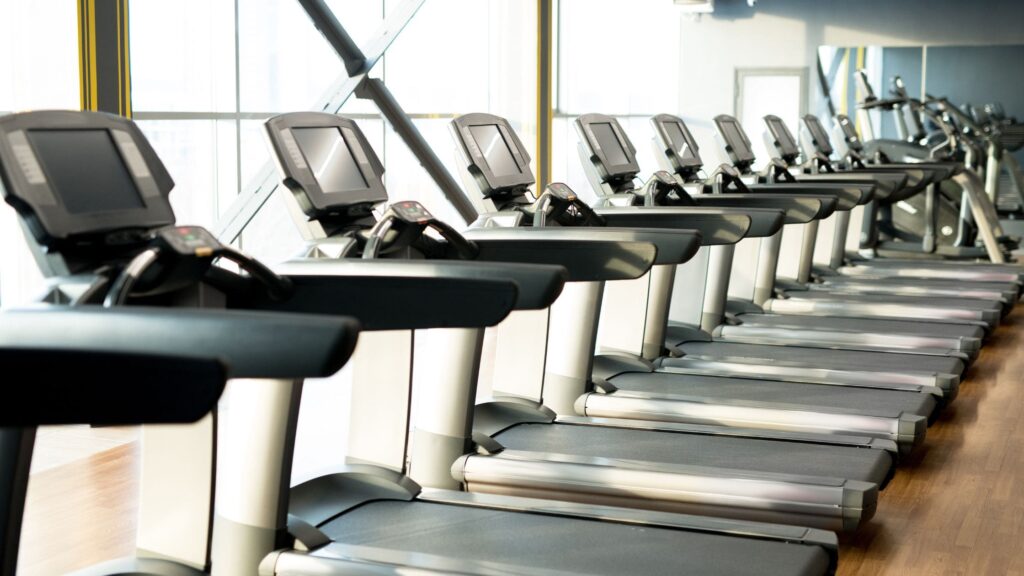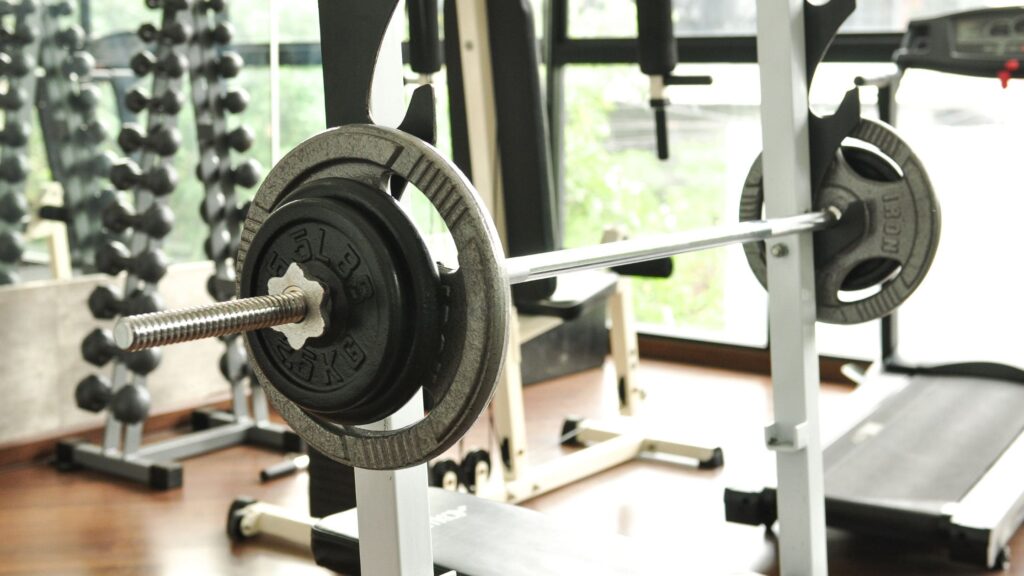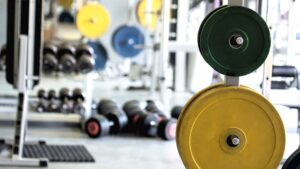When it comes to running a successful fitness business, the supplier you choose for your gym equipment is more than just a vendor—they’re a partner in your success. Whether you’re opening your first gym or expanding an existing space, the right supplier can impact everything from your budget to the experience you provide to your members.
We understand the challenges gym owners face, like balancing cost with quality, ensuring a diverse range of equipment, and building a space that keeps members coming back.
Imagine sourcing durable, high-performance machines that cater to everyone from beginners to fitness enthusiasts—all while staying within budget. Now, picture the headaches of dealing with unreliable products or poor customer support. The difference is clear, and that’s why selecting the right partner is so crucial.
In this article, we’ll guide you through the essential factors to consider when choosing a gym equipment supplier, from evaluating product quality to ensuring solid after-sales support. Whether you’re building a boutique gym or a large commercial facility, these tips will help you make a choice that aligns with your goals and delivers long-term value.
Why Choosing the Right Gym Equipment Supplier is Crucial?
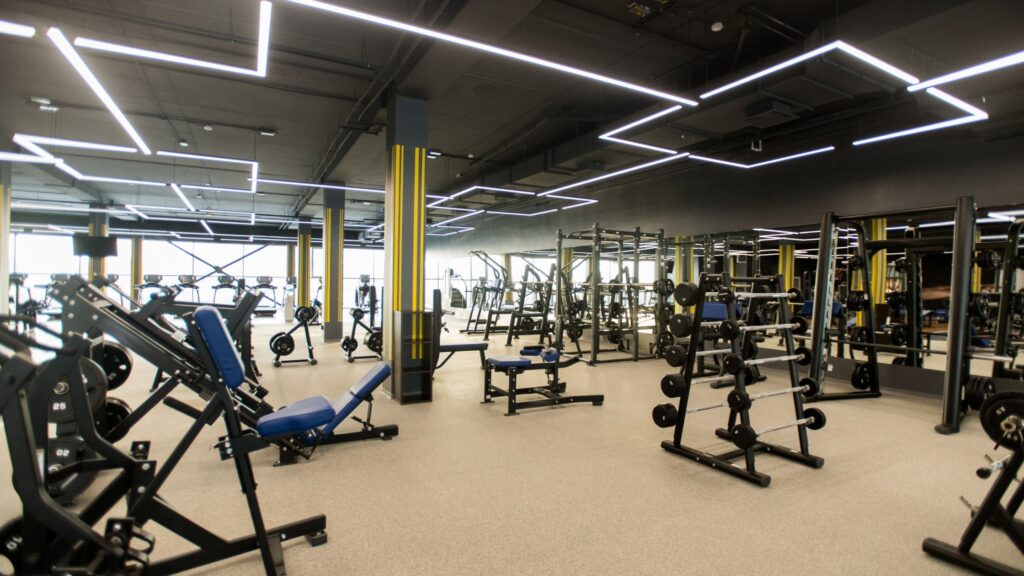
The supplier you choose directly affects the quality of your gym equipment, the satisfaction of your customers, and the long-term profitability of your fitness business. High-quality equipment not only enhances the workout experience but also reduces maintenance costs and downtime.
Conversely, working with an unreliable supplier can lead to poor-quality machines, frequent repairs, and a loss of trust among your members.
Imagine investing in gym equipment only to find that it breaks down frequently or doesn’t meet the safety standards expected in the fitness industry. Such scenarios not only waste money but also harm your gym’s reputation. On the other hand, a trusted gym equipment supplier with a proven track record ensures that you receive durable, high-performing machines. This leads to greater customer satisfaction and a gym environment that people want to return to.
Beyond equipment quality, your supplier also influences other critical factors such as warranty coverage, customer support, and financing options. A supplier offering comprehensive warranties and reliable support services ensures that you don’t face unexpected expenses or prolonged downtime.
Assessing Your Gym’s Needs
Before investing in gym equipment, it’s essential to evaluate your gym’s specific requirements. The right decisions depend on factors such as your clientele’s fitness preferences, the available space, the types of workouts you plan to offer, and your budget. By taking these considerations into account, you can create a fitness space that maximizes value and satisfies customer expectations.
Who Is Your Target Audience?
Understanding your target audience is crucial when selecting gym equipment. The fitness goals, skill levels, and preferences of your members should guide your decisions. For example, if your gym caters to beginners, focus on user-friendly machines with straightforward controls and guided movements.
Cardio equipment like treadmills or elliptical machines with pre-programmed settings is often ideal for those just starting out.
If your gym targets advanced fitness enthusiasts, prioritize strength training equipment designed for heavy use, such as weight machines, free weights, and squat racks. These members will appreciate durable, high-performance equipment that supports intensive training. Considering your audience ensures that your gym meets the unique needs of your clients, enhancing their satisfaction and retention.
What Is the Size and Layout of Your Gym Space?
The size and layout of your gym significantly impact your equipment choices. Carefully assess the available space to ensure your gym equipment fits comfortably while maintaining proper traffic flow. Overcrowding can create safety issues and reduce the overall user experience.
Start by measuring your fitness facility and considering how each piece of equipment will fit into the designated area. Allow enough room around machines for users to exercise safely and for staff to perform maintenance. Equipment such as cardio machines, strength training stations, and free weights require specific spacing to avoid congestion.
What Types of Workouts Will You Offer?
The types of workouts you plan to offer will dictate the range of equipment you need. If your gym specializes in strength training, prioritize machines like leg presses, cable systems, and bench presses. For cardio-focused gyms, treadmills, stationary bikes, and rowing machines should take precedence.
If you aim to provide a mix of both, ensure that your equipment selection reflects this balance. Functional training areas with kettlebells, resistance bands, and yoga mats can also appeal to members who prefer diverse workouts.
Budget and Future Expansion Plans
Setting a realistic budget is a critical step in the planning process. High-quality gym equipment can be a significant investment, but it pays off in durability and customer satisfaction. When budgeting, consider both the initial costs and long-term expenses, such as maintenance services and warranty coverage.
Think about your gym’s future growth. Modular or expandable equipment, such as stackable weight machines or multi-functional stations, can adapt to changing business needs. By planning for expansion, you ensure that your gym can grow alongside your membership base, avoiding the need for frequent upgrades.
How to Research Potential Gym Equipment Suppliers?
Finding the right gym equipment supplier is a critical step in setting up or upgrading your fitness business. A reliable supplier ensures you receive quality equipment, competitive pricing, and dependable customer support.
To make an informed decision, you must explore reliable sources, identify red flags, and evaluate a supplier’s reputation.
What Are the Essential Types of Equipment for Your Gym?
Every gym, whether a commercial gym or a boutique fitness space, requires a combination of essential equipment types to cater to a variety of workout preferences. The three primary categories to consider are cardio machines, strength training equipment, and accessories.
- Cardio Equipment: Cardio equipment and machines are a staple in any gym, offering users options for endurance and weight loss workouts. Treadmills, stationary bikes, and rowing machines are some of the most popular pieces. These machines should be durable, user-friendly, and equipped with customizable settings to match different fitness levels. High-quality cardio equipment enhances customer satisfaction and ensures smooth operation during peak hours.
- Strength Training Equipment: Strength training machines and free weights are necessary for members looking to build muscle or improve strength. Squat racks, weight machines, and cable systems are must-haves for a well-rounded gym. Offering a range of training equipment supports diverse workout styles and encourages membership retention by addressing various fitness goals.
- Accessories: Accessories like yoga mats, resistance bands, and foam rollers provide versatility to your gym. These items are not only cost-effective but also enhance the overall workout experience by accommodating warm-ups, cool-downs, and functional training.
Check our dedicated guide for a full list of 73 types of gym equipment and fitness machines.
Where to Look for Reliable Suppliers?
There are several effective ways to identify reputable gym equipment suppliers:
- Start with online searches, which can provide a wide range of options. Look for reviews and testimonials from gym owners who have purchased from these suppliers to gauge their track record.
- Industry directories and trade associations are also valuable resources for finding trusted fitness equipment suppliers. These organizations often list verified manufacturers and suppliers with a proven reputation.
- Social media platforms, particularly LinkedIn, can help you connect with fitness equipment manufacturers and suppliers. Engage with fitness forums and online communities where gym owners share recommendations and discuss their experiences.
What Are the Red Flags to Watch Out For?
When researching gym equipment suppliers, it’s essential to watch for warning signs that may indicate a poor choice. Lack of transparency is one of the most significant red flags. If a supplier is unwilling to provide clear information about their equipment, warranties, or pricing, it’s best to move on.
Poor communication and vague warranties are also indicators of potential problems. A reliable gym equipment supplier should offer clear terms and be responsive to inquiries.
Limited product range or outdated equipment may suggest that the supplier cannot meet the evolving needs of a commercial gym.
Additionally, avoid suppliers without certifications or a solid company history, as they may fail to deliver the quality or customer support your fitness business requires.
How to Evaluate a Supplier’s Reputation and Experience
When choosing a gym equipment supplier, evaluating their reputation and experience is crucial to ensuring you receive reliable products and services. A supplier with a strong track record often provides quality equipment, reliable customer support, and adherence to safety standards.
Start by verifying certifications and compliance with industry safety standards. Suppliers who meet ISO or CE certification requirements demonstrate a commitment to providing safe and durable equipment. This is particularly important for commercial gyms, where safety is a priority for both members and staff.
Next, review the supplier’s company history and track record. Established suppliers with years of experience in the fitness industry are more likely to deliver consistent quality and support.
Look for client references or case studies that highlight successful collaborations with other gym owners. These examples provide insight into their ability to meet business needs and deliver on promises.
Should You Consider Local or International Suppliers?
Deciding between local and international gym equipment suppliers depends on factors such as cost, shipping, support, and cultural considerations. Each option has its own set of advantages and potential drawbacks.
Local suppliers often provide faster delivery and more accessible customer support. In-person consultations, installation services, and quicker response times for maintenance issues are significant benefits when working with a local supplier.
Additionally, buying from a local supplier can simplify warranty claims and repairs, minimizing downtime for your fitness facility.
International suppliers, especially those based in manufacturing hubs like China, may offer lower prices and a wider range of equipment. However, shipping costs, import taxes, and potential delays can add to the overall expense. Communication and cultural differences might also present challenges, particularly when discussing customization options or service agreements.
What Are Key Factors to Consider When Choosing a Supplier?
Selecting the right gym equipment supplier is crucial for the success of your fitness business. The supplier you choose directly impacts the quality of your equipment, your customer satisfaction levels, and the efficiency of your operations. By considering specific factors such as quality standards, warranty and support services, and the range of products available, you can make an informed decision that benefits your gym in the long term.
What Quality Standards Should You Look For?
Quality should be the foundation of your supplier evaluation process. High-quality gym equipment ensures durability, user safety, and long-term cost savings. When assessing a supplier, start by verifying their compliance with safety certifications like ISO or CE marks. These certifications demonstrate that the equipment meets industry standards and is designed with user safety in mind.
Durability is another critical factor. Equipment made with high-grade materials reduces the likelihood of frequent repairs, minimizing maintenance costs and downtime for your fitness facility. Ask about the supplier’s manufacturing process to understand how the materials are sourced and assembled. Reliable suppliers often provide detailed information about their production methods to give you confidence in the quality of their products.
How Important Are Warranty and Support Services?
Comprehensive warranties and dependable support services are essential when selecting a gym equipment supplier. Equipment breakdowns can disrupt operations and frustrate customers, so having a supplier that offers robust after-sales support is invaluable.
Look for suppliers who provide clear warranty terms that cover parts, labor, and potential repairs. These warranties should reflect confidence in the durability of their products. Maintenance services are equally important.
Check if the supplier has a dedicated team for routine maintenance and how quickly they respond to service requests. Responsive customer support ensures minimal downtime and smooth operations for your commercial gym.
Additionally, understand the supplier’s return and repair policies. Knowing how they handle defective products or replacements can save you from unexpected costs.
What Range of Products Should the Supplier Offer?
The range of equipment a supplier offers can significantly impact your ability to meet the diverse needs of your members. A good supplier should provide a variety of gym equipment, from cardio machines to strength training equipment and accessories, to suit different workout preferences.
Customization options are also valuable, especially for gym owners who want to align their fitness space with their brand identity. Some suppliers offer custom branding or specific feature requests, which can enhance the overall experience for your members.
Additionally, a wide product range allows you to source all your gym equipment from a single supplier, simplifying the procurement process and potentially reducing shipping costs.
How Can You Evaluate the Supplier’s Cost and Financing Options?
A detailed understanding of costs and financing options helps you manage your budget effectively. Start by requesting itemized quotes from multiple suppliers. These quotes should include the cost of individual pieces, shipping, installation services, and any additional charges, such as maintenance or warranty fees.
Compare payment terms offered by different suppliers. Some may provide flexible options such as installment plans or financing solutions, which can ease the upfront financial burden. Inquire about package deals or discounts for bulk purchases, especially if you’re equipping an entire fitness facility.
Suppliers often offer competitive pricing for larger orders, making it an excellent way to save money while obtaining the right gym equipment.
Does the Supplier Have Experience in Similar Projects?
Experience in handling projects similar to yours is a strong indicator of a supplier’s capability. Whether you’re setting up a boutique gym, a large commercial gym, or a corporate fitness center, working with a supplier who has relevant expertise ensures smoother operations.
Ask the supplier for references from clients with similar business needs. Reviewing their past projects and speaking with their clients can provide valuable insights into their performance. Did they deliver the equipment on time? Was the installation process handled efficiently? These questions help you determine if the supplier is equipped to meet your specific requirements.
How to Compare Brands Offered by the Supplier?
The brands a supplier carries play a significant role in the quality and performance of your gym equipment. Assess the reputation and durability of the brands offered. Established brands with a strong track record in the fitness industry are typically more reliable and deliver higher satisfaction.
Look for suppliers that partner with manufacturers known for producing quality equipment. Durability and build quality are key considerations when evaluating brands, as these factors reduce maintenance costs and ensure long-lasting use. Research reviews and testimonials for the brands the supplier carries to understand their performance in real-world scenarios.
How to Verify the Quality of Gym Equipment from a Particular Supplier?
When investing in gym equipment for your fitness facility, ensuring quality is non-negotiable. Verifying the durability, usability, and compliance of the equipment guarantees safety and enhances customer satisfaction. This involves exploring demonstrations, inspecting materials, and even visiting suppliers in person.
Should You Request Product Demonstrations or Samples?
Product demonstrations or samples provide an excellent opportunity to assess the functionality and reliability of gym equipment before committing to a purchase. Whether conducted in person or virtually, these sessions let you see how the equipment operates under real-world conditions.
Reach out to your gym equipment supplier to arrange a demonstration or trial period. Suppliers familiar with commercial gym setups often offer these services as part of their customer support.
Observing how the machines handle different levels of stress, from weight machines to cardio equipment, can reveal their durability and usability. A virtual demo can also showcase features like digital interfaces and maintenance ease.
How to Inspect Equipment’s Durability and Usability?
Durability and usability are two essential factors when assessing gym equipment. High-quality materials and a sturdy build ensure that the equipment can withstand heavy usage over time, minimizing maintenance costs. Usability, on the other hand, impacts how easily members can interact with the equipment, directly influencing customer satisfaction.
During product demos, inspect the materials used in construction. Look for quality finishes on weight machines and smooth operation in cardio equipment like treadmills and ellipticals. Test for ergonomic features that enhance user experience, such as adjustable seating, intuitive controls, and safety locks. Pay attention to noise levels, as quieter machines are often preferred in professional fitness establishments.
Should You Visit the Supplier or Showroom?
Visiting the supplier or their showroom allows you to conduct a comprehensive inspection of the equipment and assess the supplier’s operations. Seeing the equipment in person gives you a better understanding of its build quality, dimensions, and compatibility with your fitness space.
During your visit, take the opportunity to ask questions about customization options.
Many gym equipment manufacturers provide branding opportunities or tailor specific features to suit unique business needs. Additionally, observing the supplier’s facility can offer insights into their production process, inventory levels, and maintenance services.
Requesting Quotes and Comparing Prices
Getting detailed, itemized quotes from multiple gym equipment suppliers is essential when planning a purchase. These quotes help you compare pricing, financing options, and additional services. Request clear breakdowns of costs for individual items, package deals, and any bundled services such as maintenance or installation.
Ask suppliers about payment terms and financing options to find a plan that aligns with your budget constraints. Inquire about potential discounts, particularly if you’re outfitting an entire fitness facility or purchasing multiple machines.
Package deals can often reduce costs, but ensure they include quality equipment and comprehensive warranties. Don’t hesitate to negotiate terms and request adjustments to suit your fitness business’s needs.
What Mistakes Should You Avoid When Choosing a Supplier?
Selecting the wrong gym equipment supplier can lead to costly mistakes. Below are common pitfalls to avoid when making your decision:
- Ignoring warranty details: Ensure the warranty covers both parts and labor. Check its duration and whether it includes on-site repairs or replacements.
- Overlooking hidden costs: Some suppliers add fees for delivery, installation, or extended warranties. Always request a complete breakdown of costs.
- Not verifying credentials: Confirm the supplier’s certifications and track record. Lack of safety standards or industry compliance can signal unreliable service.
- Failing to test equipment: Whether through demonstrations or trials, not testing equipment can result in products that don’t meet your fitness facility’s needs.
- Neglecting future expansion: Choose suppliers offering flexible solutions and equipment that can grow with your business to avoid unnecessary upgrades later.
How Do Environmental Considerations Impact Your Choice of Gym Equipment Supplier?
Sustainability is becoming a priority for many fitness professionals and gym owners. Opting for a gym equipment supplier with eco-friendly manufacturing practices can align your business with environmentally responsible values. Look for suppliers using sustainable materials, such as recycled metals or plastics, in their products.
Some manufacturers go further by offering recycling programs for old gym equipment, ensuring minimal environmental impact when you upgrade your fitness facility. Choosing energy-efficient cardio machines can also reduce operational costs and lower your gym’s carbon footprint.
How to Build a Long-Term Relationship With a Supplier?
Establishing a lasting partnership with a gym equipment supplier can ensure consistent service, reduce operational hiccups, and support your gym’s growth. A strong relationship allows you to access reliable fitness equipment and dependable support tailored to your gym’s unique needs.
By prioritizing communication, support services, and long-term goals, you can create a partnership that benefits both your business and the supplier.
Why Is After-Sales Support Important?
After-sales support is a critical factor in maintaining the smooth operation of your fitness facility. Look for gym equipment suppliers who offer comprehensive maintenance services, including routine inspections and quick access to replacement parts. These services minimize downtime and extend the life of your equipment, ensuring it meets safety standards and customer expectations.
Responsive technical support is equally essential. A supplier with a dedicated customer service team can address issues swiftly, whether through email, phone, or on-site assistance. Reliable support not only reduces maintenance costs but also boosts customer satisfaction by ensuring the equipment in your fitness space remains functional and safe.
How to Negotiate a Long-Term Partnership
Negotiating a long-term partnership with a gym equipment supplier starts with clear communication. Share your fitness business’s current needs and future goals. For example, if you plan to expand your gym space or introduce new workout equipment, include these details in your discussions. This helps the supplier understand your vision and tailor their offerings to your needs.
Establishing mutual goals is key. Service agreements should cover maintenance schedules, customization options, and pricing structures that fit within your budget constraints. Negotiate discounts for bulk purchases or loyalty programs, especially if you plan to regularly update or expand your fitness equipment inventory.
Making the Final Decision
After compiling all the necessary information about gym equipment suppliers, it’s time to finalize your choice. Start by reviewing the details you’ve gathered, including itemized quotes, product demonstrations, and feedback from previous interactions.
Take note of the supplier’s customer support, the durability of their equipment, and their ability to meet your gym’s long-term fitness goals.
Weigh the pros and cons of each supplier based on their track record, product range, and financing options. Trust your research and the insights gained from equipment tests and facility visits.
This thorough process ensures you select a supplier who aligns with your budget constraints and delivers quality equipment that enhances your fitness facility’s reputation and functionality.
Conclusion
Choosing the right gym equipment supplier is more than just ticking boxes—it’s about building a partnership that supports your vision and helps your fitness business thrive. Whether you’re just starting out or scaling up your commercial gym, the decisions you make now will shape your future success. By taking the time to research, test products, and assess a supplier’s reliability, you’re not just buying equipment—you’re investing in your gym’s reputation, member satisfaction, and long-term growth.
We know this process can feel overwhelming, but remember: finding a supplier who understands your needs, provides high-quality equipment, and offers dependable support will make all the difference. It’s not just about today’s challenges; it’s about having a partner who can help you adapt to the fitness industry’s evolving trends and your gym’s growing needs.
Ultimately, it’s about creating a space where your members feel inspired and supported, and where your business can flourish. With a clear plan and the right supplier by your side, you’re setting yourself up for lasting success. You’ve got this, and we’re here to help guide you every step of the way.



